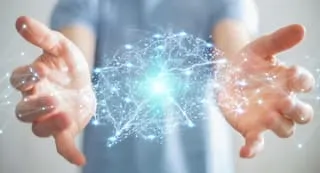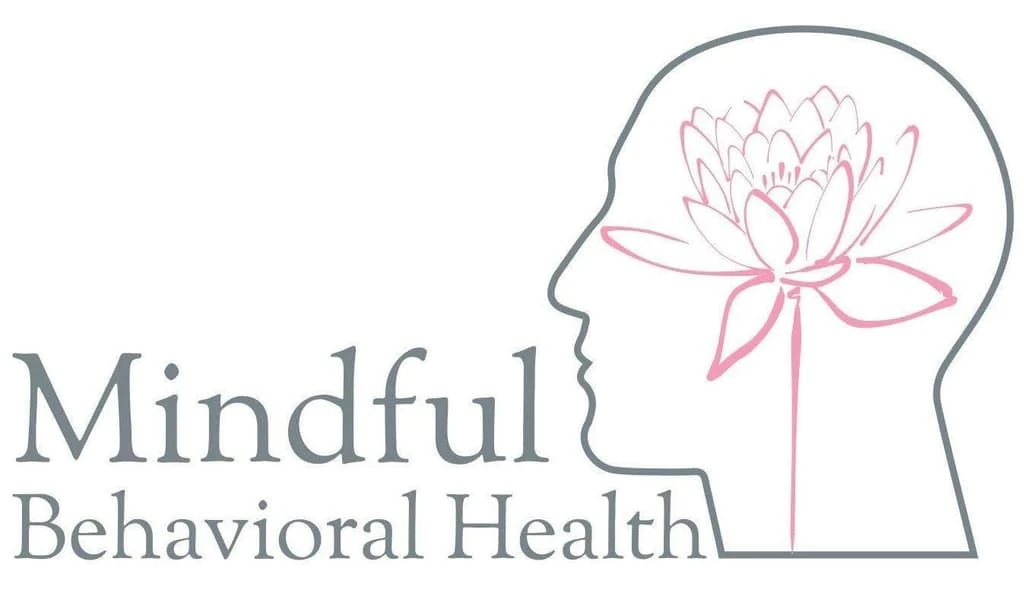
What is TMS?
TMS uses a pulsed magnetic field to stimulate underactive areas of your brain. The magnetic impulses safely pass through your skull and into the brain, where they boost nerve activity, normalizing neurotransmitters, stimulating neurogenesis, and improving your symptoms. The typical course of treatment is about 20 minutes, five times a week, for approximately six weeks.
Why NeuroStar TMS?
At Mindful Behavioral Health, we have partnered with NeuroStar TMS to provide TMS therapy to our patients. NeuroStar TMS Therapy was FDA-cleared in October 2008 for patients suffering from depression who have not achieved satisfactory improvement from prior antidepressant medications. At present, the NeuroStar TMS system is the most studied TMS system.
How Does TMS Work?
The NeuroStar TMS Therapy system generates a pulsed-magnetic-field which activates the brain cells (neurons) about 2-3 centimeters into the brain directly beneath the treatment coil. This pulsed-magnetic-field is of the same strength as what is produced by a magnetic resonance imaging (MRI) machine.
The treatment coil is applied to the head, the position of the coil depends on what treatment one is receiving, but most commonly it is placed on the front of the head on the left side (left dorsolateral prefrontal cortex). As this magnetic field stimulates the brain, it produces very small electrical currents. These electrical currents activate brain cells (neurons), which then release neurotransmitters like serotonin, norepinephrine, and dopamine. Since depression is thought to be the result of an imbalance of these chemicals in the brain, TMS can restore that balance and, thus, alleviate depression. Additionally, TMS is thought to help treat depression because it induces neurogenesis (brain cell growth). Once the brain cells (neurons) are stimulated, they will form more connections with neighboring neurons making the signaling from one neuron to another much more effective. It’s like taking your brain cells to the gym.
What should I expect during TMS treatment?
After you recline in the comfortable treatment chair, the small magnetic coil is positioned and placed lightly against your head. Once your treatment begins and the NeuroStar TMS system starts delivering magnetic pulses, you will hear a clicking sound and feel a tapping sensation on your head.
Each TMS treatment takes approximately 20 minutes. Getting repeated treatments at the start is the key to achieving long-lasting symptom improvement. For that reason, you’ll have a TMS session five days a week for about six weeks. A typical course of TMS Therapy is 36 treatments.
Since TMS doesn’t affect your alertness or memory, you can drive yourself to your appointment. You can also return to your normal activities after each treatment.
What are my chances of getting better?
Multiple clinical trials have documented the benefits of TMS. About 70-75% of patients undergoing TMS therapy will experience improvement in symptoms of depression, and about 35-37% of patients will experience complete relief of their depressive symptoms. These numbers are significant when one takes into account that, after having failed three or more medications, only around 4-7% of patients experience improvement in their symptoms of depression with further medication trials. During the NeuroStar TMS Therapy clinical trials, patients undergoing TMS were four times more likely to achieve remission compared to patients receiving a sham treatment. At Mindful Behavioral Health, we track our patient’s improvement, and our numbers are slightly above the clinical trial results.
It is important to be aware that not all patients will respond to TMS or any other form of depression treatment.
How long does the antidepressant effect last? Will I need more TMS in the future?
The most recent TMS research shows that about 66% of patients who responded to treatment were still symptom-free at 12-month follow-ups. NeuroStar TMS is the only TMS system with the durability of its effects established over 12 months of clinical trials. In other words, only 1 in 3 patients needed to return for “maintenance” TMS sessions, these in many cases being around 15-20 treatments.
What are the possible side effects of TMS?
TMS is non-systemic (does not circulate in the blood throughout the body), so it does not have side effects such as weight gain, sexual dysfunction, nausea, dry mouth, sedation, etc. The most common side effects reported during clinical trials were headache and scalp discomfort – generally mild to moderate – occurring less frequently after the first week of treatment. Though uncommon, you may experience minor muscle twitching during the treatment (will stop as soon as the pulse/treatment stop), and skin irritation below the area of the magnet.
During the NeuroStar clinical trials, and with over 2 million treatments delivered, NeuroStar TMS has demonstrated its safety with no occurrence of seizures. However, there is a small risk of a seizure occurring during treatment. Seizures have been reported in some of the NeuroStar TMS systems; regardless, this risk is no greater than what has been observed with oral antidepressant medications.
Less than 5% of patients treated with NeuroStar TMS Therapy discontinued treatment due to side effects during the clinical trials.
Are there any contraindications?
The only true contraindication is for patients who have ferromagnetic (metal) devices implanted in their heads. The most common examples are aneurysm coils/clips, cochlear implants, vagus nerve stimulators, and/or deep brain stimulators; this does not include metallic fillings in teeth. Also, patients who have a history of seizures or those on large doses of anti-seizure medicine should avoid TMS treatment.
Is TMS therapy covered by my insurance?
Yes, most insurance companies will pay for it when done for an FDA-cleared condition, at present, this being depression. Mindful Behavioral Health is one of the few providers in the area to accept in-network insurance for TMS treatment.
Most insurance companies require that patients fail at least 3-4 medications during the current depressive episode and that one has engaged in psychotherapy for treatment to be covered.
What if my insurance will not cover TMS, or I am looking for the treatment of a non-FDA approved condition?
Because we believe that TMS is an effective treatment modality yet know that insurance companies will not cover treatment in every case and/or for every condition, we have developed a fair and upfront fee for TMS. You will know the exact cost of treatment before you start and the price will not change. This will allow you to compare the cost and quality of treatment at Mindful Behavioral Health with other providers in our area. Additionally, we can facilitate financing for those interested.
Please contact us for a full TMS quote.
Is TMS Therapy like electroconvulsive therapy (ECT) and/or Spravato™ (esketamine)?
No, all of these treatments are unique and use a completely different mechanism of action to provide depression relief.
Spravato™ (esketamine) is a new type of depression medication that is associated with rapid relief of depression symptoms by modulating the NMDA receptor.
Electroconvulsive therapy (ECT) is the traditional way of treating treatment-resistant depression. ECT is a very effective medical procedure that requires the use of anesthesia and the induction of a seizure in order to provide its antidepressant effect.
Can I have TMS more than once?
Yes, the treatment may be repeated as clinically indicated. For patients who have shown improvement with TMS, insurance companies will, on most occasions, pay for repeated treatment courses as clinically indicated. These treatments will usually need to be at least three months apart.
Can TMS Therapy cause brain tumors and/or memory loss?
No, TMS therapy will not cause brain tumors or memory loss.
Can I take antidepressants in combination with TMS Therapy?
Yes, for many patients, a combination of medication and TMS is the best long-term plan for keeping depression symptoms under control.
